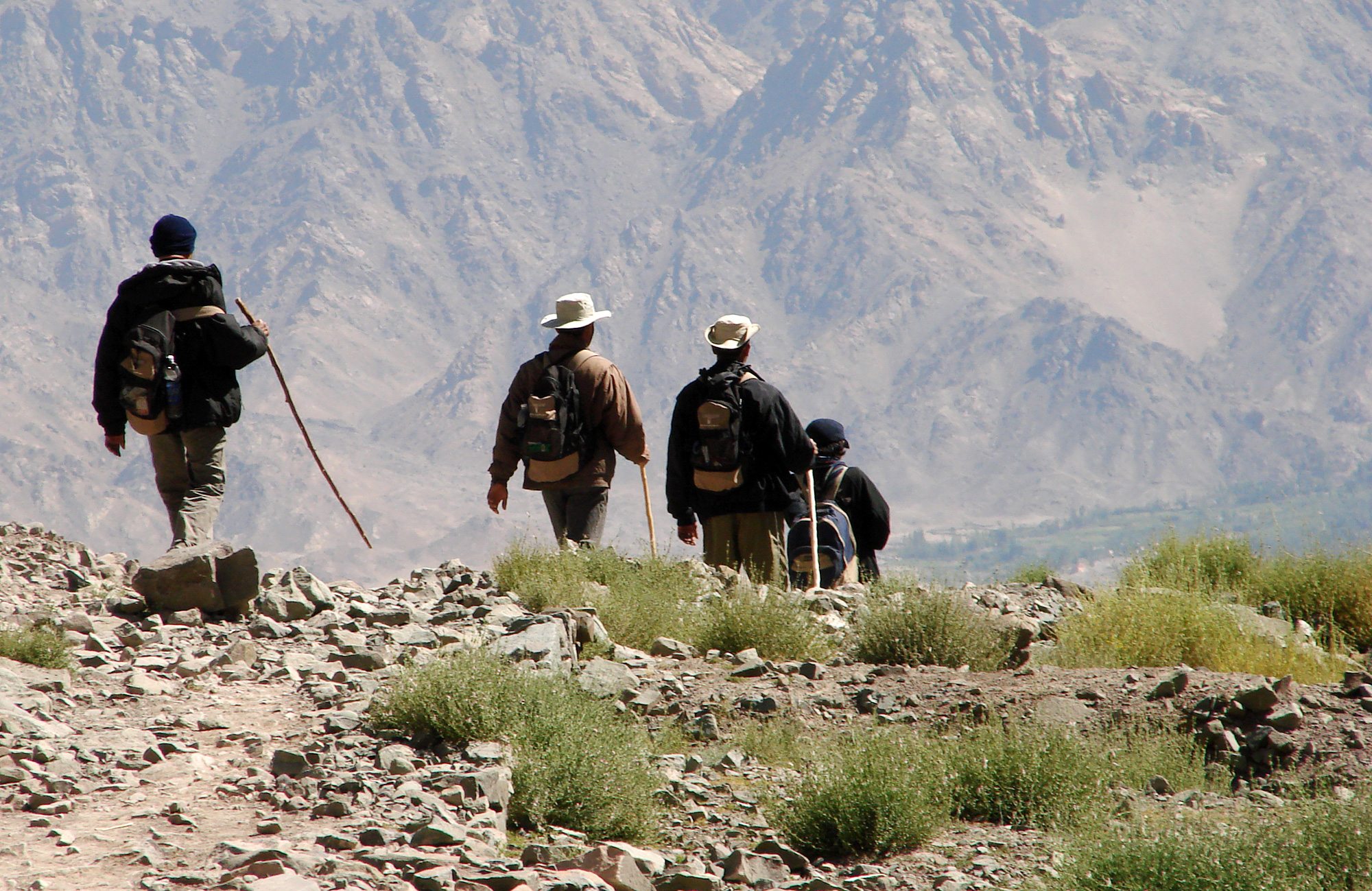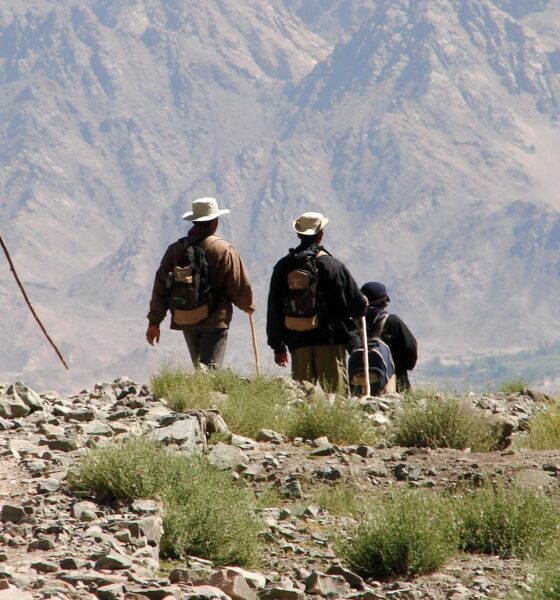

Features
UNWTO: leading the global drive to sustainable tourism
Blue & Green Tomorrow caught up with the United Nations World Tourism Organisation – the world governing body for the travel and tourism industries – about its work in pushing for sustainable tourism.
This piece originally featured in Blue & Green Tomorrow’s Guide to Sustainable Tourism 2013.
What does sustainable tourism mean to UNWTO?
UNWTO defines sustainable tourism as: “Tourism that takes full account of its current and future economic, social and environmental impacts, addressing the needs of visitors, the industry, the environment and host communities.”
Sustainability principles in our sector refer to the environmental, economic, and socio-cultural aspects of tourism development, and a suitable balance must be established between these three dimensions to guarantee its long-term sustainability. Therefore, guidelines for sustainable development and management practices should be applicable to all forms of tourism in all types of destinations, including mass tourism and the various niche tourism segments.
This requires the informed participation of all relevant stakeholders, as well as strong political leadership to ensure wide participation and consensus building. Neither can we forget the role of tourists themselves. Sustainable tourism should also maintain a high level of tourist satisfaction and ensure a meaningful experience to the tourists, raising their awareness about sustainability issues and promoting sustainable tourism practices amongst them.
What are the benefits of making the global travel and tourism industries sustainable?
Tourism is one of the world’s leading socio-economic activities. Last year we surpassed, for the first time ever, one billion international tourists and, according to UNWTO forecasts, this growth will continue up to 1.8 billion in 2030.
Against this backdrop, the benefits of sustainability in tourism are clear: it is a vital economic activity, it generates revenue for developing countries where the steepest growth rates are registered and tourism is a huge job creator. Sustainable tourism is the only way to ensure all existing benefits prevail. Given the sheer size of global tourism, the sector is in a unique position to benefit local communities economically and socially and to raise awareness and support for the preservation of the environment.
What is the economic case for sustainable tourism?
Sustainability is key for business as it consolidates the basis upon which tourism, literally, operates and exists. Furthermore, nature tourism, ecotourism, heritage, cultural, adventure, rural and community tourism are taking the lead in tourism markets, and an even faster growth is expected in the coming years.
Consumers value positively sustainable policies conducted by tourism companies and are willing to pay more for more sustainable options. Investing in sustainable tourism is an element of competitiveness and an added value to companies and destinations as it can help reduce the costs related to energy, water and waste, while increasing the quality of the tourism products and experiences. Indeed, there are a number of studies which confirm a growing demand for more environmentally friendly tourist services, and a growing numbers of consumers willing to pay more to companies that benefit local communities and conservation.
Ban Ki-moon said that tourism can help fight climate change and push a global shift to a green economy. How does it fit into tackling the world’s biggest challenges?
The UN has singled out tourism as one of the 10 sectors that can drive the transformation to what we call the green economy. This implies improving human wellbeing and reducing inequalities over the long-term, environmental risks and ecological scarcities. Applied to tourism development for example, it is becoming ever clearer that investing in environmentally-friendly tourism can drive economic growth, lead to poverty reduction and job creation, while improving resource efficiency and minimising environmental degradation.
And this has positive spill overs to critical social goals, such as poverty reduction. Tourism’s geographical expansion and labour-intensive nature, for example, supports a spread of employment and can be particularly relevant in remote and rural areas where many of the poor live.
Sustainability was the central theme of World Tourism Day in September. What reception did it have and why did UNWTO opt for this theme?
The UNWTO General Assembly decides the themes for World Tourism Day, which we try to align with general UN observance years (energy in 2012, water in 2013). ‘Tourism and Sustainable Energy: Powering Sustainable Development’ as last year’s theme and campaign, underscored tourism’s role in a brighter energy future, promoting access to modern, efficient and affordable energy services.
Tourism has its part to play and the sector has already taken important steps towards this future – improving energy efficiency and increasingly using renewable energy technologies in its operations. These steps are creating jobs, lifting people out of poverty and helping to protect the planet.
How can investors play a role in encouraging a shift to sustainable tourism?
Investors are increasingly aware that the return on their investment in sustainable tourism can be swift and substantial and that by protecting the values of biodiversity, ecosystems and cultural heritage, they are also responding to a growing demand for natural and cultural authenticity. This move towards more sustainable tourism would create additional employment and revenue in local communities; respond to changing consumer demands for a more sustainable travel experience; increase competitiveness and significantly reduce operating costs for tourism businesses.
Yet, it is clear from the UNWTO Tourism in the Green Economy: Background Report that investment is still one of the major challenges in the transition to a green economy in tourism. In that regard, in order to mobilise and maximise tourism investment, the report calls for a) better access to tools and financing for small and medium-sized tourism enterprises, in particular from governments and international organizations through public-private partnerships; b) public policies and support, such as subsidies, that encourage private investment in green tourism and c) for destination planning and development strategies as the first step towards the greening of tourism.
What is the consequence for the global economy and environment if we continue with business-as-usual and don’t adopt a more sustainable tourism industry?
The continuing expansion of tourism requires careful management. We need to ensure that we maximise the economic and social benefits of this immense sector while at the same time addressing its potential negative impacts on the environment and in our common heritage. This is at the heart of UNWTO’s mandate as the UN specialised agency in the field of tourism: the development of responsible, sustainable and universally accessible tourism.
 Tourism brings in much needed investment (a critical factor in most developing countries), creates employment locally (thus allowing for populations to stay in their communities of origin) and generates important export earnings, which are essential to have access to imports of other good and service such as modern technology.
Tourism brings in much needed investment (a critical factor in most developing countries), creates employment locally (thus allowing for populations to stay in their communities of origin) and generates important export earnings, which are essential to have access to imports of other good and service such as modern technology.
Again, the numbers speak for themselves. More than one billion international tourists mean also a huge responsibility and the power to foster positive change by winning the increasing support of the private sector, and raising awareness among millions of travellers around the world.
Further reading:
Sustainable tourism: people power and destination stewardship
UN emphasises ‘vital role’ of sustainable tourism
Sustainable tourism can help tackle the world’s biggest challenges, says UN official
81% of tour operators and 75% of travellers say yes to more sustainable travel


 Environment12 months ago
Environment12 months agoAre Polymer Banknotes: an Eco-Friendly Trend or a Groundswell?

 Features11 months ago
Features11 months agoEco-Friendly Cryptocurrencies: Sustainable Investment Choices

 Features12 months ago
Features12 months agoEco-Friendly Crypto Traders Must Find the Right Exchange

 Energy11 months ago
Energy11 months agoThe Growing Role of Solar Panels in Ireland’s Energy Future





























